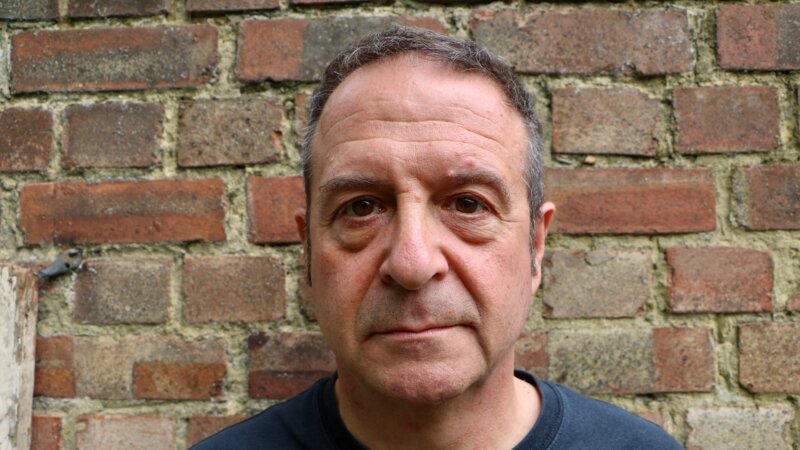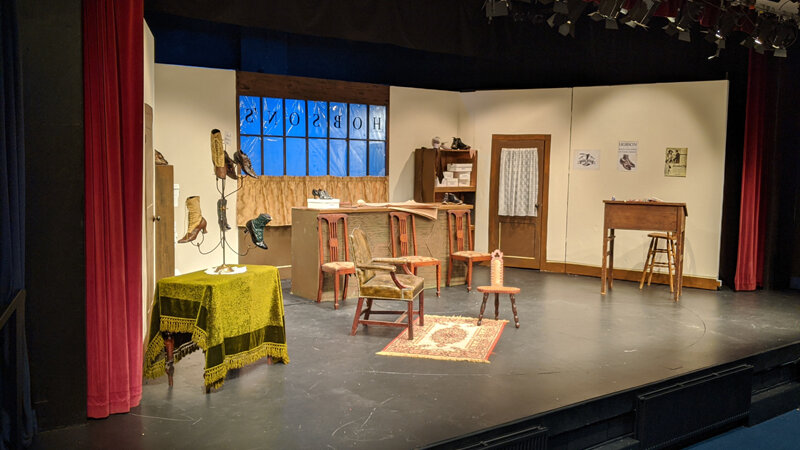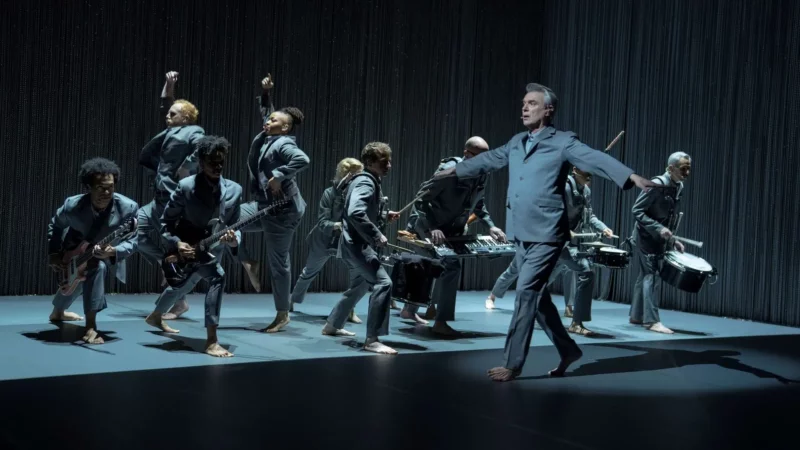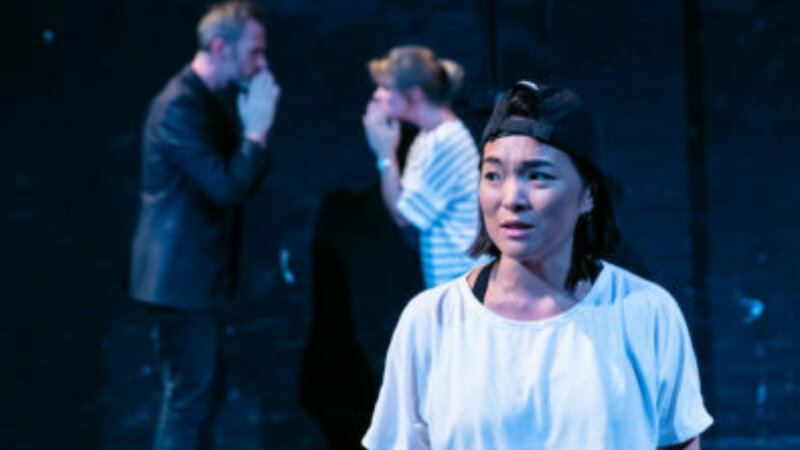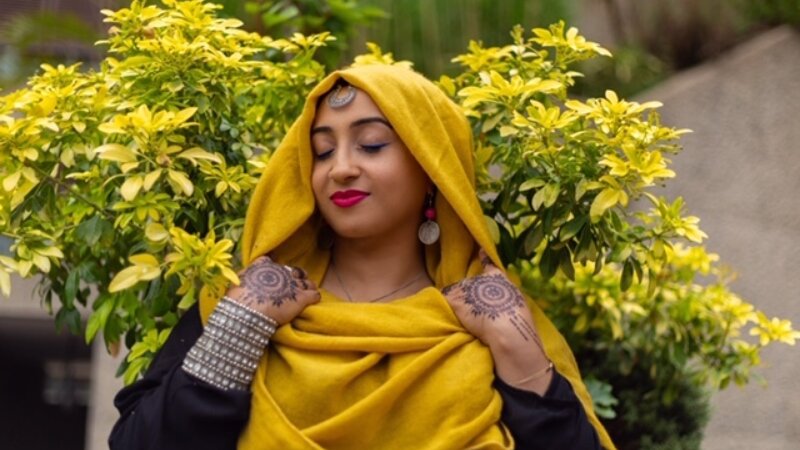Rachael Young on NIGHTCLUBBING
Rachael Young is a creator whose theatre, live art and interactive installations often involve the theme of social engagement. A lecturer on The London Theatre’s MA course at University of Roehampton, she will also be working with London Contemporary School of Dance later in the year.
Young’s latest socio-political work, NIGHTCLUBBING, arrived at The Lowry as a tribute to cult figure Grace Jones’ famous 1981 album of the same name. Ahead of the show, she spoke to Now Then about the production, Afrofuturism and other issues of gender and race.
Why did you name your show NIGHTCLUBBING?
I called the show NIGHTCLUBBING as a kind of tribute to Grace Jones’ 1981 album with the same name. It was a seminal album, way ahead of its time and incredibly eclectic – mixing reggae, electronica, funk, soul, tango and post punk and incorporating lots of remixes.
In 2015, a story hit the news about a group of women who were refused entry to a London nightclub on account of their skin tone and their weight. I was totally astonished, as a dark skinned black woman, the fact that the world fails to see and value our beauty is a constant source of disbelief and anger.
I made a connection between these two moments in history and became interested in exploring what a figure like Grace Jones could offer us as we fight for a better future. Grace Jones is a dark skinned, androgynous, Jamaican woman, who became an international superstar and who’s remained up there for decades, despite – or perhaps because of – her completely uncompromising approach to everything she does.
Nightclubs should be places where we can let go and allow our unbridled selves to be free. They should be spaces of liberation and revolution, not spaces of oppression.
With a title like NIGHTCLUBBING, I imagine music and dance are core to the show. What decisions were made about the music and choreography, and why?
Well, the work is still in development, so there are still many decisions to be made, but I can tell you a bit about where our influences have come from and what we’re hoping for.
Grace Jones is obviously as massive inspiration for the music and movement within the show. Throughout the show, we’re constantly sampling moments from the album, not that you would necessarily know, but there’s an essence of it always present. I’m working with two brilliant musicians on the show: Mwen Rukandema and Leisha Thomas. Mwen makes primarily electronic music, whilst Leisha is primarily a guitarist, with a whole host of pedals and effects. They bring a mix of interests and expertise across R&B, neo soul, post-punk, drum and bass, experimental music, so the sounds throughout are rich with all sorts of influences.
A lot of what I do in my work in terms of choreography is about bringing so-called ‘social dance’ into a performance space. I’m not a trained dancer, but I’ve been dancing on nights out as long as I can remember and much of my work is about celebrating the movement of the untrained body. Grace Jones is of course a huge inspiration for the movement and overall atmosphere of the piece. It’s about embodying the state of tension that surrounds her entire presence; her physical strength and fitness, her sexual ambiguity, her unpredictable nature and unapologetic defiance and poise. And it’s about engaging with the body in the constant fight and push towards a better future.
Can you give us a 140 character summary tweet about your show?
#NIGHTCLUBBING is a musical exploration of intersectional feminism through the filter of Grace Jones.
Can you tell us more about the history of Afrofuturism and why you felt it was important for your show to embrace this genre?
I didn’t know loads about Afrofuturism before I started researching for this show. Researching it has opened me up to a whole host of incredible black artists, scientists and inventors, and has given me a really hopeful way to view the world.
Amongst other things, I’ve been reading a book called Afrofuturism: The World of Black Sci-Fi and Fantasy Culture by Ytasha L Womack. It gives a brilliant overview of how through myriad mediums Afrofuturism strives to break down racial, ethnic and social limitations and to empower and free individuals to be themselves.
The term was coined in 1993, but artists, musicians, writers, scientists – they were working with Afrofuturist ideas arguably since the 50s, when Sun Ra first emerged.
There’s a great podcast on This American Life called ‘We are the Future’ – check it out, it explores the movement and introduces loads of incredible people working within the genre right now.
What are your thoughts on Black Panther?
It was great watching it. I guess I was waiting for a long time to see myself reflected on the big screen. Seeing photographs of young black children watching the film really brought it home. I speak a lot about representation and when you finally see it on a massive scale like this, within mainstream culture, it does feel hopeful, like maybe things are getting better for the next generation.
Why do you think women of colour might particularly feel that Afrofuturism resonates for them?
Many of the important figures within the Afrofuturist movement are women – Octavia Butler, Grace Jones, Chakaia Booker, Janelle Monae – and the ideas at the centre of Afrofuturism run counter to processes of power by exploitation of all kinds. The patriarchal power structure that we live under is intimately linked to a history of colonialism and white supremacy. It’s not possible to disentangle racism and sexism. Approaches offered by Afrofuturism show a multitude of different representations of black women. We’re not reduced to stereotypes and our blackness, our femaleness, our queerness is celebrated and lifted up rather than denigrated.
I am interested in your intersectional approaches in the show. Can you tell us about your reasons for doing so?
The thing about intersectionality is that it should be an obvious way to think. As a black woman, it’s who I am and, to an extent, it’s who we all are. We’re constantly meeting at a multitude of intersections, to deny this is to present a completely unrealistic and bias view of the world. Thinking intersectionality disables the notion of the ‘neutral’ straight, white, able bodied male, a notion which has been used to denigrate people across the world for centuries and must seriously be abolished.
Who are your role models?
Katherine Johnson, who’s depicted in the film Hidden Figures, a black female mathematician, who worked for NASA during the space race, then Aretha Franklin, Audre Lorde, Solange Knowles, Angela Davis, Nina Simone, Michelle Obama, my mum – Luenda Edwards, my aunties – Willa Gunter, Crodel Young, Celia Young…
How does the show merge your personal experiences with socio-political commentary?
In the past, my work has been more explicitly autobiographical, using narrative to explore broader social themes through my own experiences. However, in more recent work, I’ve moved away from constructing traditional narratives and towards movement and visual practices, which enable me to explore more complex and challenging ideas in a very visceral and embodied way. So, my personal experiences of being a black woman, growing up as a minority in Nottingham and finding myself marginalised, tokenised and oppressed are integral to this piece. But this work is also about broader experiences that are shared by women and people of colour in a million different ways all over the world. It’s about finding solidarity and strength through sharing our experiences to be part of a wider movement for change.
Image inset by Marcus Hessenberg.




